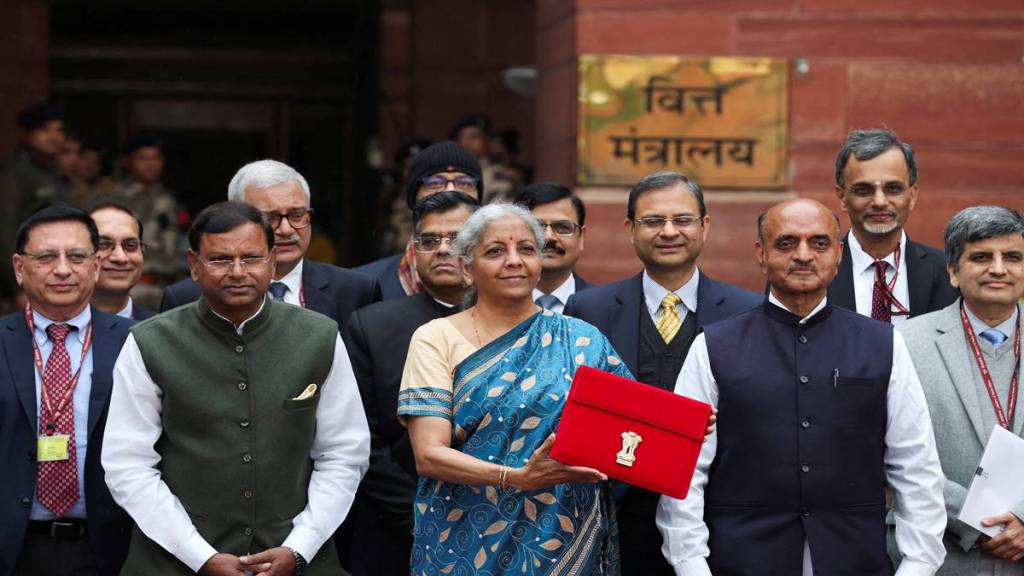Defying expectations of the government announcing some populist schemes or handing out some doles to entice voters, Finance Minister Nirmala Sitharaman’s sixth consecutive Budget speech did none of that. Barring a few cosmetic announcements such as a new housing scheme for the middle class and the extension of the rural housing scheme by an additional 2 crore houses, the Budget has nothing remotely populist.
At the outset of the Budget Session on Wednesday, Prime Minister Narendra Modi exuded confidence of the NDA’s government to power when he said that the government would present a full Budget in July where it would unveil the roadmap to a Viksit Bharat, the government’s ambition to turn India into a developed nation by 2047. That confidence appeared to have had an effect on the interim Budget presented by the Finance Minister in Parliament today.
“The absence of any populist measures by the government in this Budget shows that the government is confident of winning the upcoming Lok Sabha elections on the Ram Mandir plank. There are no substantive schemes or announcements pertaining to the three most significant vote blocs – the farmers, youth and women – although the government has included ‘Gareeb’ (poor) in that ambit,” Amitabh Tiwari, an investment banker-turned-political analyst, told Financial Express Online.
“There have also been no doles or freebies announced by the government on the lines of what some state governments, including those of the BJP, have offered to entice voters. This indicates that there is the firm belief of the government that it does not need to resort to any populist measures to win the coming Lok Sabha elections,” Tiwari added.
While governments have traditionally shied away from introducing any major announcements in the Interim Budget, it was the Modi government which, in the run-up to the 2019 Lok Sabha elections, introduced the PM-KISAN Nidhi scheme. There were also a few changes to the exemtions in the personal taxation regime — all treated at the time as populist measures.
However, Suvrokamal Dutta, economist and political commentator, points out that even the UPA-II government made a slew of announcements during its last Budget prior to the 2014 Lok Sabha polls and that there was no ‘populism’ in the announcements made by the Modi government in 2019. “The Interim Budget highlights the four pillars that the government sees at making India a developed nation by 2047 – ‘Garib’ (Poor), ‘Mahilayen’ (Women), ‘Yuva’ (Youth) and ‘Annadata’ (Farmer) only announcements that assume some significance in the context of the elections. It is also in line with the areas that the PM has focussed on since he took over in 2014. Also, the absence of populist measures is the sign of a confident government that does not need any poll sops to win elections,” he said.
A majority of FM Sitharaman’s speech was dedicated to how the government took long strides towards ‘Atmanirbhar Bharat’, committed to ‘Panch Pran’, and laid solid foundations for ‘Amrit Kaal’. “As a result, our young country has high aspirations, pride in its present, and hope and confidence for a bright future. We expect that our government, based on its stupendous work, will be blessed again by the people with a resounding mandate,” she said.
“This budget reflects the aspirations of young India. There are two important decisions in this Budget– for research and innovation, a fund of Rs 1 lakh crore has been announced, the extension for the tax exemption given to start-ups has also been announced,” PM Modi said in his address following the presentation of the Budget.
The only announcements that could be loosely construed as populism were regarding the construction of 2 crore new houses under the Pradhan Mantri Awas Yojana over the next five years, a new housing scheme for the middle-class, the extension of the health insurance scheme Ayushman Bharat to ASHA and Anganwadi workers, and enhancing the Lakhpati Didi scheme to cover 3 crore women now.


